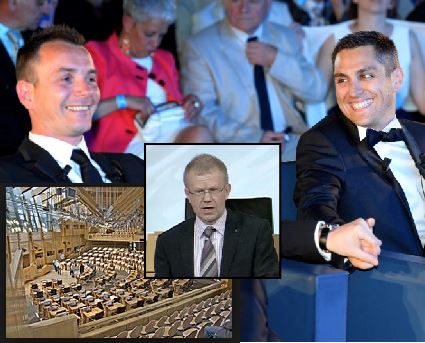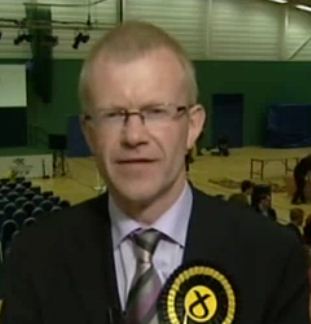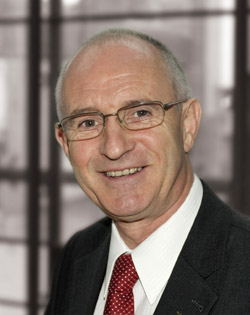Same-sex Marriage: an MSP outlines his position
In advance of the bill and subsequent vote in the Scottish Parliament on same-sex marriage John Mason MSP - a committed Christian - outlines his position.
inset: John Mason MSP
 My understanding has been that majorities of MSPs within all five parties represented at Holyrood are supportive of same sex marriage. Therefore, it seemed to me crucial that if legislation was to be introduced on this subject, churches should be allowed to opt out of any such marriage ceremonies if they wished to do so. That is why my motion in August (2011) concentrated on this point (see wording below). Since then there have been reassurances from Government, politicians across the parties, and gay spokespeople that they agree churches should be allowed freedom to act in accordance with their own beliefs. This is encouraging. My understanding has been that majorities of MSPs within all five parties represented at Holyrood are supportive of same sex marriage. Therefore, it seemed to me crucial that if legislation was to be introduced on this subject, churches should be allowed to opt out of any such marriage ceremonies if they wished to do so. That is why my motion in August (2011) concentrated on this point (see wording below). Since then there have been reassurances from Government, politicians across the parties, and gay spokespeople that they agree churches should be allowed freedom to act in accordance with their own beliefs. This is encouraging.
Clearly it remains to be seen what any legislation might actually say. Therefore, I have tried to avoid stating what my position would be in regard to any bill, because we have not seen the bill yet! In addition, a Scottish bill might do its best to provide safeguards for churches and others but it could still be trumped by Westminster legislation (most obviously the Equality Act). Therefore, I would also be looking for reassurances regarding Westminster legislation and this could require amendments to the Equality Act (which is outwith the power of the Scottish Parliament). This point is noted in the Scottish Government's consultation.
I cannot, therefore, say at this stage how I would vote on any bill that might come forward.
Concerning my own personal beliefs, it is widely known that I am a member of Easterhouse Baptist Church. I believe that the Bible is the word of God and its teachings are God's direction as to how I should live my life.
It is perhaps worth stating that I do not see the Christian faith as primarily a code of conduct. Rather I see it first and foremost as a relationship with Jesus Christ available to people who realise they cannot manage their lives by themselves. Thus, it is after coming into such a relationship with God, that I and other believers look to the Bible to see how we should live our lives.
Some of the Bible's teaching coincides with widely accepted legislation in many countries, e. g. not to murder, not to steal. However, other teaching, such as loving our neighbour or controlling our thoughts, cannot possibly be and should not be enshrined in legislation. Such teaching is more of a code which I and other Christians should aim to follow. Frequently in my life I have done, said or thought the wrong thing, or failed to do, think or say the right thing! However, the central truth of the Christian faith is that we do all repeatedly fail but we can all be forgiven.
It seems clear to me that the Bible's teaching is that a follower of Jesus should not have a sexual relationship with someone of the same sex. However, that does not mean I see it as my role to stop everyone else having such a relationship. Not all that Christians regard as sin should be against the law. This is why I have said I am 'relaxed' about same sex marriage.
I accept that this is not the view of all Christians. Some would say that the Bible's teaching should be put into the law of the land as far as possible. There is clearly a variety of views within the Christian church as to exactly how far we should seek to have God's teaching included as the law of the land. On this specific point of same sex sexual relationships, I see the key teaching of the Bible as being not to have the relationship at all. I see it as very much secondary whether the relationship is called a civil partnership, marriage, or anything else. However, again I accept that some parts of the Christian church see the use of the word 'marriage' as very important.
It is also worth pointing out at this stage that I, and I think many other Christians, would make a major distinction between sexual orientation and sexual behaviour. I realise that this is not the view of all of the gay community. Whereas, colour, sexual orientation, gender, disability, etc are part of our make up, outwith our control, and must not be grounds for discrimination, Christian teaching is that our sexual behaviour should be under our control and we are responsible for it.
As an MSP who represents constituents with a wide variety of views on this (and many other!) subjects, I do not want to see any kind of discrimination and it is my duty to oppose all discrimination. In that sense I am relaxed about allowing same-sex marriage. At the same time, as someone seeking to follow Jesus Christ, I can say that I am clear that people following Him should not be in same-sex marriages. This is obviously a tension! Some would say it is contradictory and I have been criticised from both ends of the spectrum. I would just say in response that my view of church is non-conformist and I am very committed to a clear separation of church and state. Therefore, while it is not always easy, I will try to keep a proper balance between my responsibilities in a largely secular society and my own personal beliefs.
In summary, therefore, I seek a pluralistic society where minorities can live together in mutual acceptance even while disagreeing on many issues. I do not want the Christian community to try and squash the gay community; nor do I want the gay community to squash the Christian community.
My primary concern remains that churches and others who do not agree with same sex marriage should have the freedom to disagree.
Footnotes:
The following motion was put forward by John Mason in an endeavour to ensure that churches could opt out from having to perform same-sex marriage ceremonies.
Motion S4M-00586 (August 2011) That the Parliament notes the current discussion about same-sex marriages and the Scottish Government's forthcoming public consultation concerning equal marriage; further notes that, while some in society approve of same-sex sexual relationships, others do not agree with them; desires that Scotland should be a pluralistic society where all minorities can live together in peace and mutual tolerance; believes that free speech is a fundamental right and that even when there is disagreement with another person's views, that person has the right to express these views, and considers that no person or organisation should be forced to be involved in or to approve of same-sex marriages.
John Mason MSP
 John Mason is the Scottish National Party Member of the Scottish Parliament for Glasgow Shettleston. John Mason is the Scottish National Party Member of the Scottish Parliament for Glasgow Shettleston.
From 2008 to 2010 he was the SNP Member of Parliament for Glasgow East. Prior to that he served as a Councillor on Glasgow City Council for the Garrowhill ward between 1998-2007 then from 2007-2008 in the new multi-member ward of Baillieston (Ward 20).
In the 2011 Scottish parliamentary election, he defeated his main rival, Labour's Frank McAveety, to win the Glasgow Shettleston seat with a majority of 586 votes.
At the time when he presented the above motion, John was interviewed by Christians Together when he spoke further on his views on the same-sex marriage proposals.
/Articles/350765/Christians_Together_in/Christian_Life/Christians_and_Politics/MSP_says_faith.aspx
----------
Dave Thompson MSP
 Fellow MSP and Highland SNP colleague Dave Thompson has also come out against the Scottish Government's proposals on same-sex marrage Fellow MSP and Highland SNP colleague Dave Thompson has also come out against the Scottish Government's proposals on same-sex marrage
In an article where he outlines his Christian commitment he has stated: "
"I just feel that faith isn't a private thing that you keep hidden to yourself as a lot of politicians would maintain- I think they've got it wrong in that respect. I think you need to let people know that you're a person of faith."
|